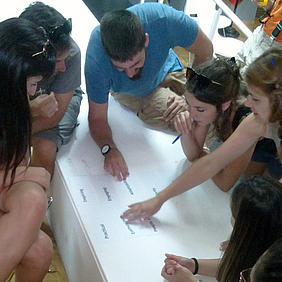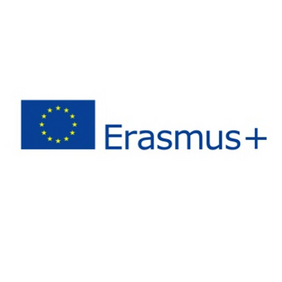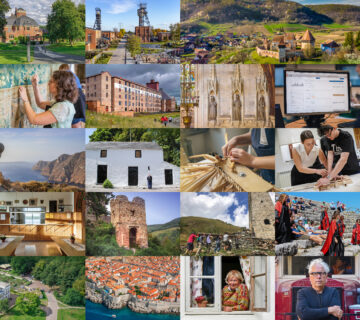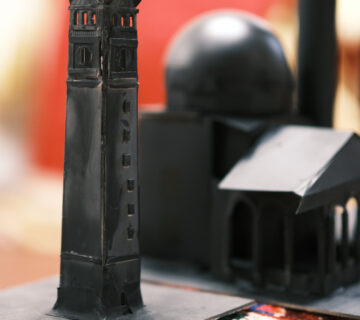Young people in rural areas are often bored, disaffected and marginalised. So, a fun, exciting training workshop for youth workers and heritage specialists in beautiful Aegina sought to change all that.
Let’s start with a digression. Have you ever seen a Pistachio tree? The history of Aegina, just a short boat-ride from Piraeus, is closely tied with this tasty nut after Phylloxera wiped out the island’s vineyards in the 1950’s. It’s now part of the island’s identity, along with the busy port and the medieval Paleochora ‘old town’ high above on the peaks inland.
This was the setting, then, for a lively, 5-day, hands-on training workshop for youth workers and heritage specialists from France, Italy, Croatia, Bulgaria and Greece taking part in the European YCARHE – Young Citizens in Action for Rural Heritage – Project.
Yet another European project, you say? Well, YCARHE puts young people centre stage and has a triple purpose: to stimulate youth creativity, personal development and citizenship, to expand the ability of youth organisations in mobilising young people through heritage and make it more appealing to them as a factor in their future.
Together with IE Training Coordinator, Valya Stergioti, we ran a series of fun, interactive exercises with participants to inspire them on how to explain heritage to young people without their eyes glazing over, how to unearth and present our own personal heritage and realise the commonalities we share across cultures and nationalities, like where I got my nose from, I have a talent for… and the most obvious cultural stereotype of me is…
After a brief history of heritage interpretation, participants stepped outside to learn how to give short interpretive talks on nearby heritage features. We even stopped the traffic in the town centre to present the local outdoor cinema under the appreciate nods of locals passing by!
The aim was to demonstrate that heritage doesn’t have to be a dry, dusty subject just for older people. It has deep, but initially unapparent, connections with young people and can be a channel for their own creativity in self-expression or a seed-bed for innovative ideas linked to their own personal development or future careers. The heritage interpretation methods used were an excellent medium for this and will subsequently be used by the trained youth workers and heritage specialists who will run non-formal educational workshops with local young people in their participating countries.
The end result, will be to have a frame of reference for training youth leaders and heritage specialists to work with young people in which Interpret Europe-backed heritage interpretation methods figure highly!
Sandy Colvine is a British freelance rural development consultant and member of IE’s training team. He lives near Avignon, France and you can contact him at sandy.colvine84@gmail.com.
To cite this article:
Colvine, S. (2016) ‘Using heritage to reconnect young people with their rural communities’. In Interpret Europe Newsletter 3-2016, 8
Available online:
https://www.interpret-europe.net/fileadmin/Documents/publications/Newsletters/ie-newsletter_2016-3_autumn.pdf




